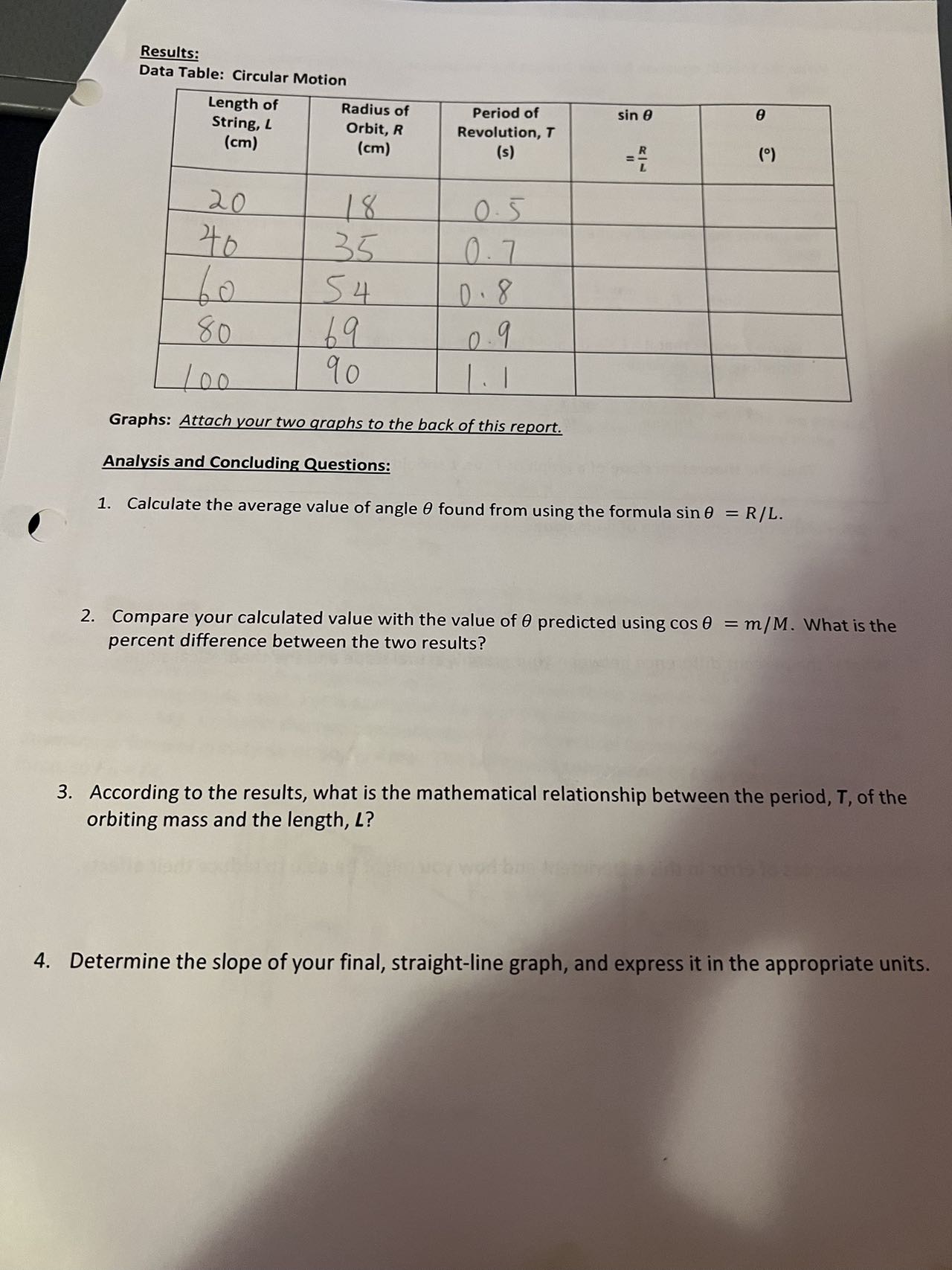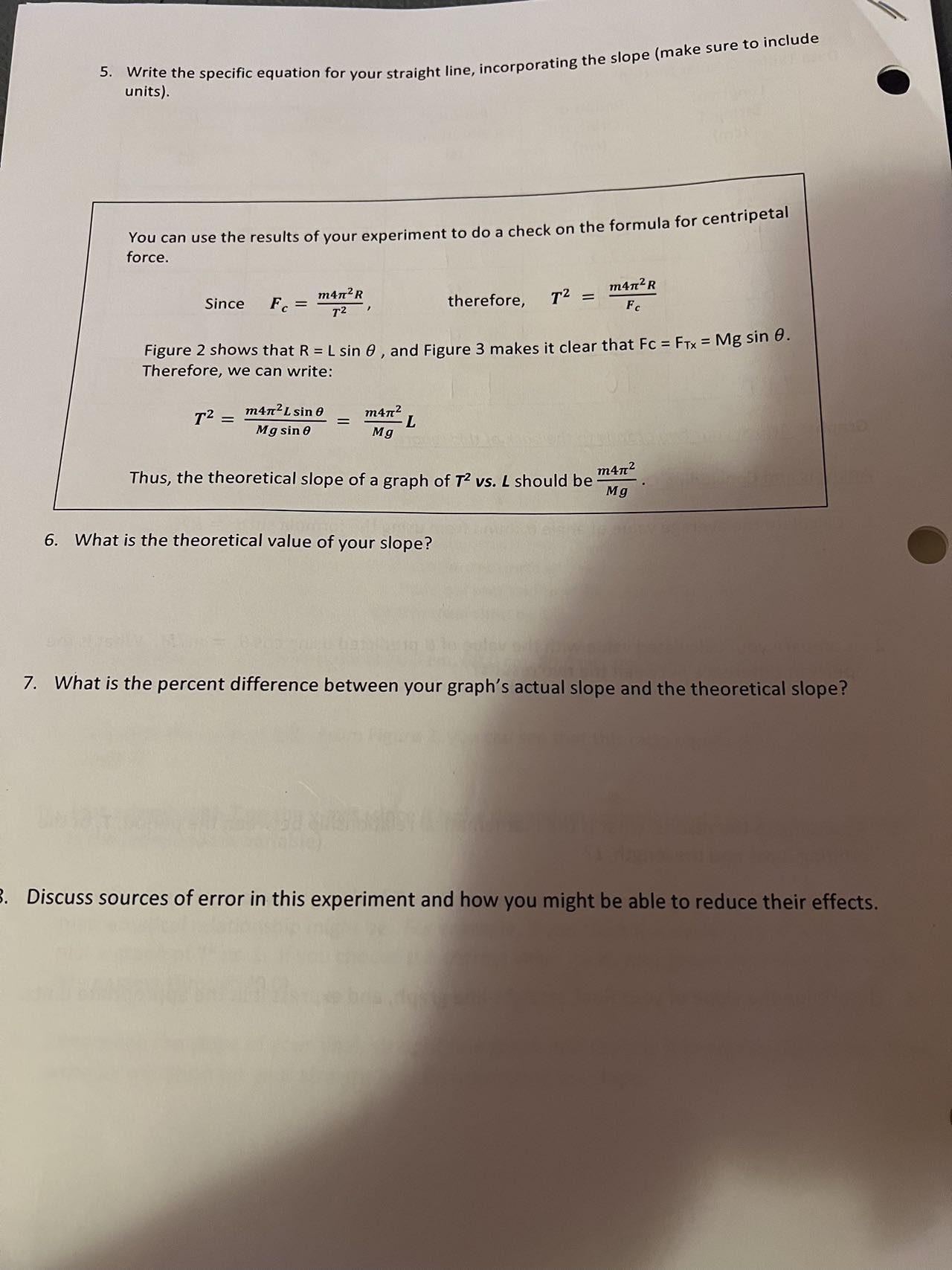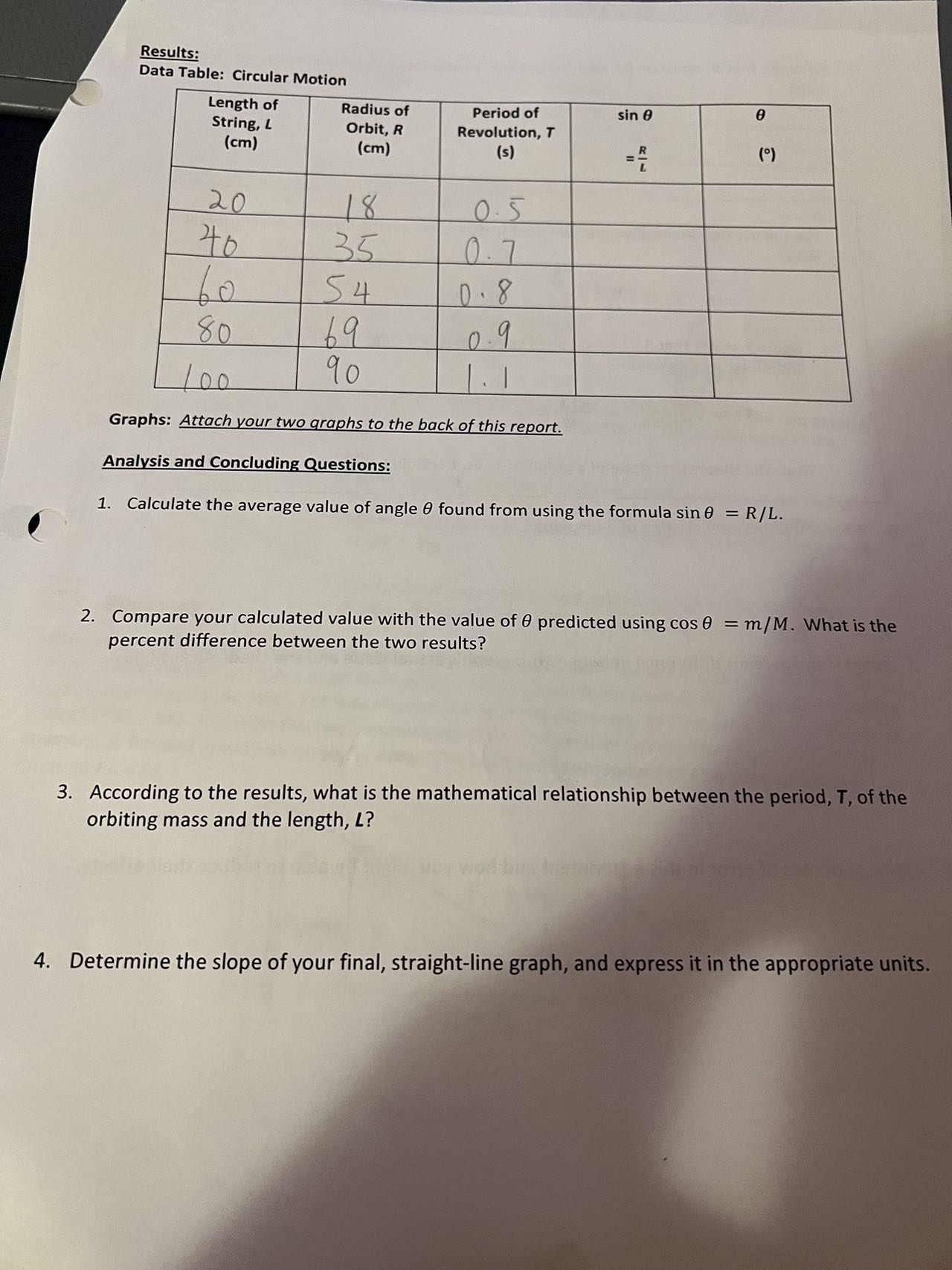Answered step by step
Verified Expert Solution
Question
1 Approved Answer
Results: Data Table: Circular Motion Length of Radius of Period of sin 0 String, L Orbit, R Revolution, T (cm) (cm) (s) R ( o)




Step by Step Solution
There are 3 Steps involved in it
Step: 1

Get Instant Access to Expert-Tailored Solutions
See step-by-step solutions with expert insights and AI powered tools for academic success
Step: 2

Step: 3

Ace Your Homework with AI
Get the answers you need in no time with our AI-driven, step-by-step assistance
Get Started


